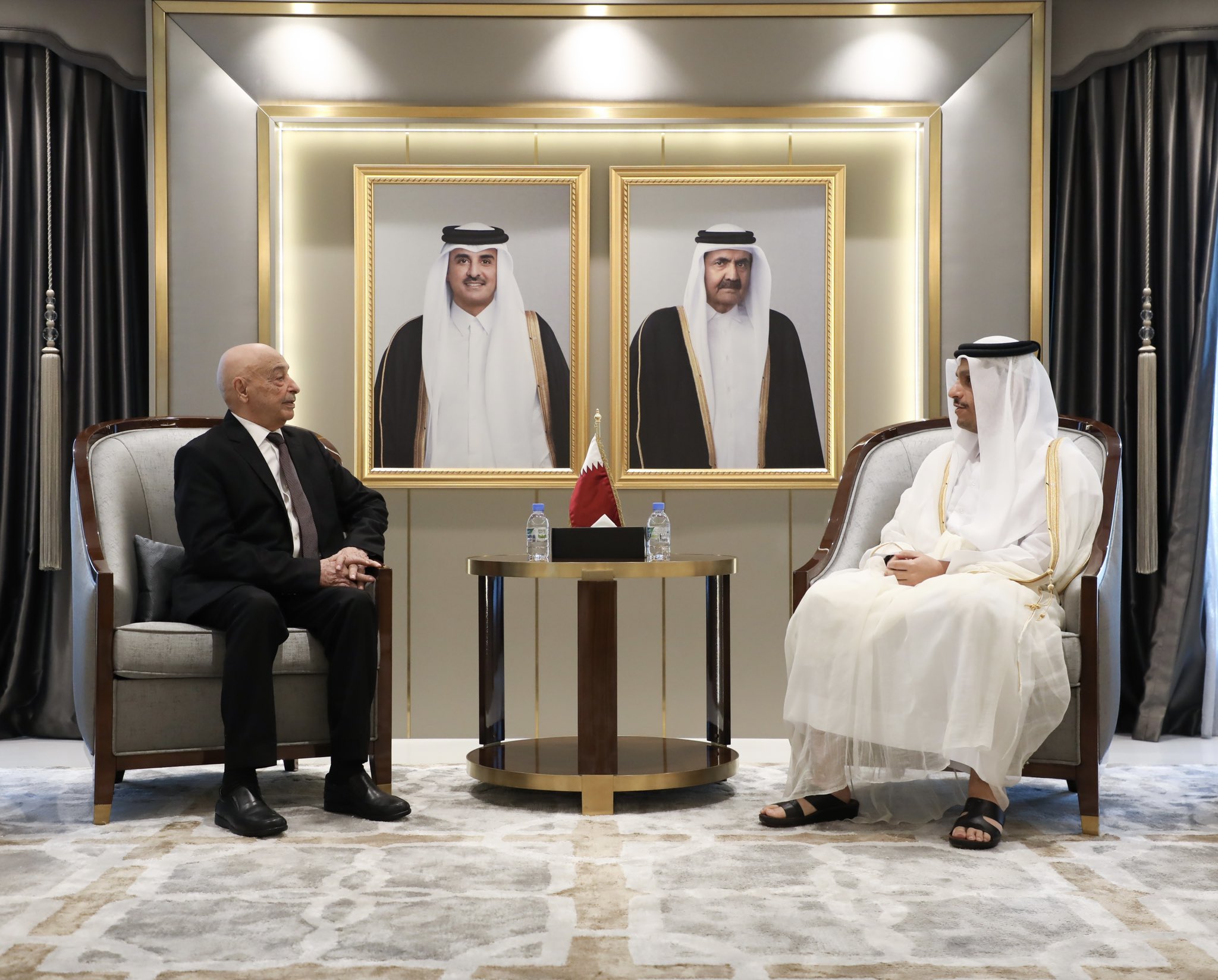The meeting came weeks after Libya witnessed its worst clashes in two years between rival factions.
Qatar has renewed its support for a peaceful solution to Libya’s ongoing political instability following violent escalations between the country’s rival factions.
In August, at least 32 people were killed in deadly clashes, amid rising tensions between the UN-backed Government of National Unity (GNU) and the newly-appointed rival administration of Fathi Bashagha.
During a meeting held in Doha on Monday with Libya’s speaker of parliament, Aguila Saleh, Qatar’s Foreign Minister Sheikh Mohammed bin Abdulrahman Al Thani expressed the state’s ongoing support for Tripoli’s unity and stability.
Saleh travelled to Qatar on Saturday in an effort to broker peace in the crisis-hit country after months of political unrest.
Qatar’s foreign minister reiterated his government’s position, tweeting: “Qatar supports all peaceful solutions that preserve Libya’s unity, stability and sovereignty to achieve its brotherly people’s aspirations.”
The Libyan official’s visit comes just days after the head of the GNU, Abdul Hamid Al Dbeibah met with Amir Sheikh Tamim bin Hamad Al Thani.
Qatar called on all parties in Tripoli to avoid escalation and bloodshed as the clashes continued. The Gulf state stressed “the need for the Libyan parties to work to ensure the protection of civilians and facilities, and to consider this a top priority.”
What’s behind this recent instability?
The internationally-recognised interim prime minister, Abdul Hamid Dbeibah was scheduled to remain in power until the presidential elections of December 2021. However, the date was changed to January 2022 just days ahead by the High National Election Committee (HNEC).
Fathi Bashagha, widely viewed as General Haftar’s ally, took power the following month after being appointed by the eastern-based House of Representatives. The move was defended by the parliament which claimed that Dbeibah’s time in office had ‘expired’.
This led to a political divide between two rival administrations, with Dbeibah refusing to step down until after elections took place.
Groups affiliated with Haftar introduced a blockade against Dbeibah’s government to apply pressure on the GNU, which was only lifted after Haftar-allied Farhat Bengdara was appointed as the state oil company chief. During the embargo, the Libyan government lost more than $3 billion in revenue.
Bashagha attempted to take control of Tripoli in May but failed, and was eventually forced out of the capital within hours of violent clashes.
Analysts commenting on the visit of Egypt’s President Abdelfattah El Sisi to Qatar on Tuesday said his meeting with the amir might tap into the situation in Libya.







